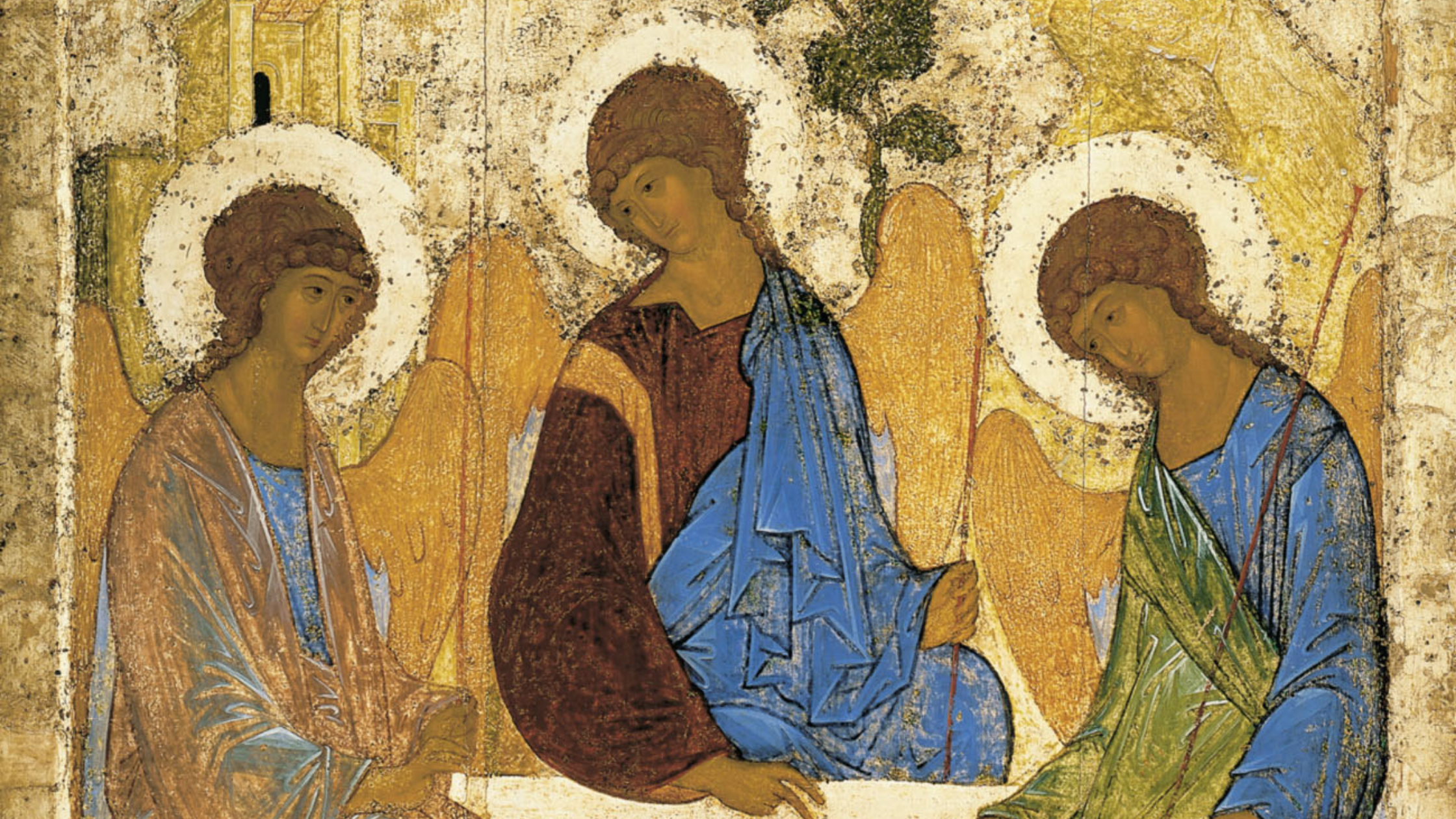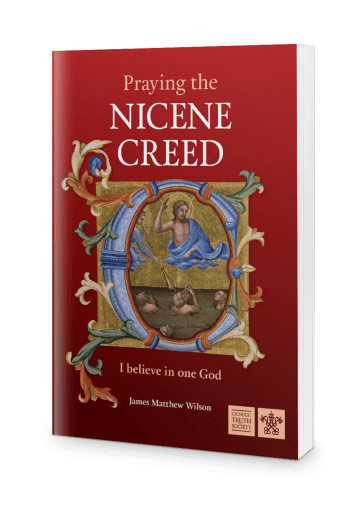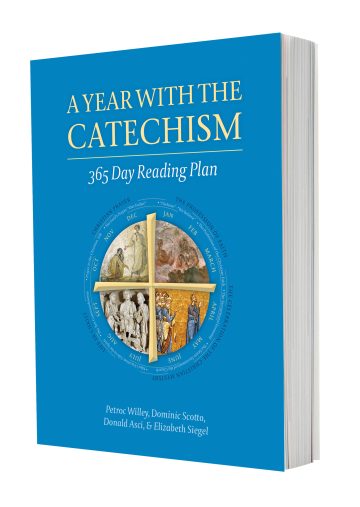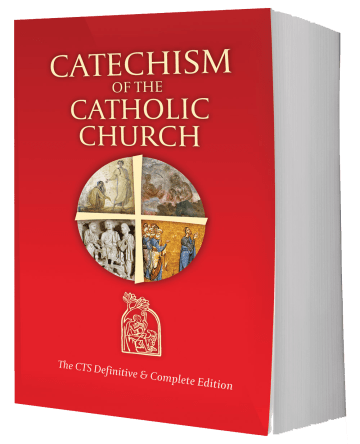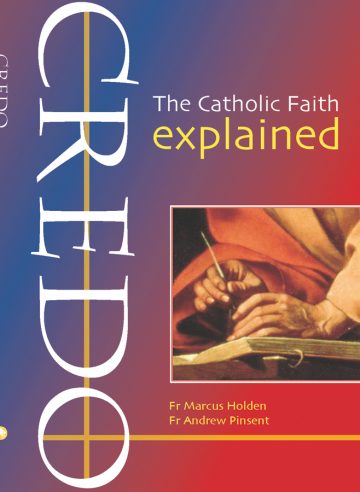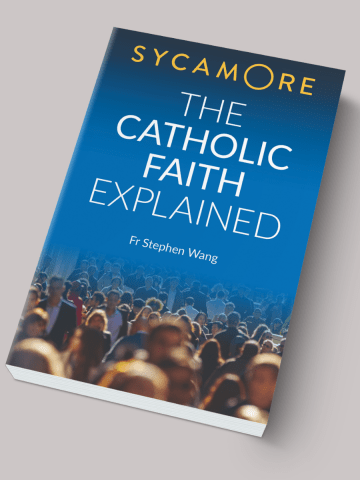I recall sitting on a couch one weekend night, twenty years ago, watching a football match with a group of friends. During a commercial break, an advertisement – probably for some beer or other – referred to the pagan gods, and this was enough to trigger the ire of one of the group. “Why should we believe in the Christian God,” he blurted, “rather than Zeus or Loki or Apollo?”
He expected no answer. He assumed there was no answer. And no one offered one. All these years on, I continue to see that episode as emblematic of how much long historical experience and hard philosophical thought the inhabitants of our age have simply forgotten.
For, yes, to be sure, the Christian and the Jew would be offended by this supposed equivalence of God with the gods, but so also would have been the ancient pagans in defence of whose gods my friend’s irreverent statement claimed to speak.
When the Christian professes to “believe in one God”, he gives expression not only to the revealed faith of a people but to the long historical reflection of humankind. In ancient literature, we find traces of the first picture human beings formed of the world about them, and it is a fragmented, arbitrary and conflicted one. One action may be pleasing to, say, Hera, but displeasing to Zeus. How, then, are we to judge which actions are good and pious, and which are not? Can something be good some of the time and bad at others? Can the same thing be simultaneously good and evil, depending on which god one asks?
In the course of time, people judged that this was not how the world stands. The world is not a mere pile of contradictions, but a whole that can be understood. Reality hangs together; the truth is one. (If the truth were not one, then all objections to this claim would be irrelevant, as one truth and its opposite could both be taken as “real”.) This unity testifies that all things are part of one system that operates according to one set of laws.
Our classical pagan ancestors concluded that though there might be many powers in the world, some of whom might be called “gods”, all stood under the authority of one supreme father-god who was the source of all. Thus, although the universe contains multitudes, it finds unity not simply in itself but in the divine goodness that is its source and principle, and which first ordered reality as a good whole.
The ancient Israelites engaged in a similar reflection. They were a small number of tribes surrounded by great peoples with mighty, and often fierce and cruel, gods. When the Lord first revealed himself to Moses, he made clear that, through all the vicissitudes of history, the weavings of fate and fortune, one God alone was Lord of All. He clarified a basic observation that no one can deny: however much things change, reality remains one. Particulars change, but within a stable totality that can be defined in terms of rational, sometimes law-like, statements.
To rebel against these hard-won observations is to rebel not only against God, but against one’s own reason, and even against one’s own seriousness as a person. It would be as if to say, “I have had many different experiences but refuse, for even a moment, to reflect on what unity might lie beneath them and hold them all together. Do I contradict myself? Very well, I contradict myself.”
It is not the boldest of claims to say that none of us wants to be totally incapable of reflection and, conversely, that all of us want our lives to be serious: to form a meaningful whole, to progress from ignorance to knowledge, from confusion to truth. For such a life to be possible, we must first perceive that the truth is one – and that this is because the gods are not many, but one. The pagan world had also, as I mentioned, a sense of one god as the father of all. The ancient Jews could not help but possess an even deeper sense of this. For the one who made all things revealed himself by name as the father of their ancestors and the father and maker of all. He spoke to them, as one person to another, and told Moses that he had long been doing so, down through history, for he was “the God of your fathers” (Ex 3:6).
God is our father not only in his having created the stable order of all that is, but as the one who initiates, directs and accompanies us through the twists and often painful turns of history. To accept his fatherhood is, therefore, to take a first step towards being a serious person – in two ways. It is to say, “I accept my obligation to understand reality as a whole and, also, to take responsibility for my life, not as a series of disconnected and trivial episodes, but as a pilgrimage towards one, true end.” No one else can force us to do such a thing, of course. We do so of our own volition, knowing as we do that, in the words of the poet Dana Gioia, “this is the life I didn’t want to waste”.
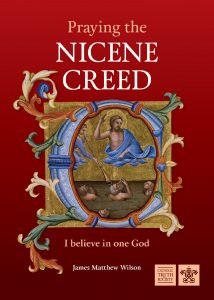 This blog is extracted from our book Praying the Nicene Creed. In this book, poet, critic and scholar James Matthew Wilson considers each line of the Nicene Creed in turn, showing through stories, images and recollections that this prayer describes the living theological reality that is at the heart of personal devotion.
This blog is extracted from our book Praying the Nicene Creed. In this book, poet, critic and scholar James Matthew Wilson considers each line of the Nicene Creed in turn, showing through stories, images and recollections that this prayer describes the living theological reality that is at the heart of personal devotion.
For deeper reflection on the Creed, and to support the mission of CTS, order your copy of Praying the Nicene Creed today.
